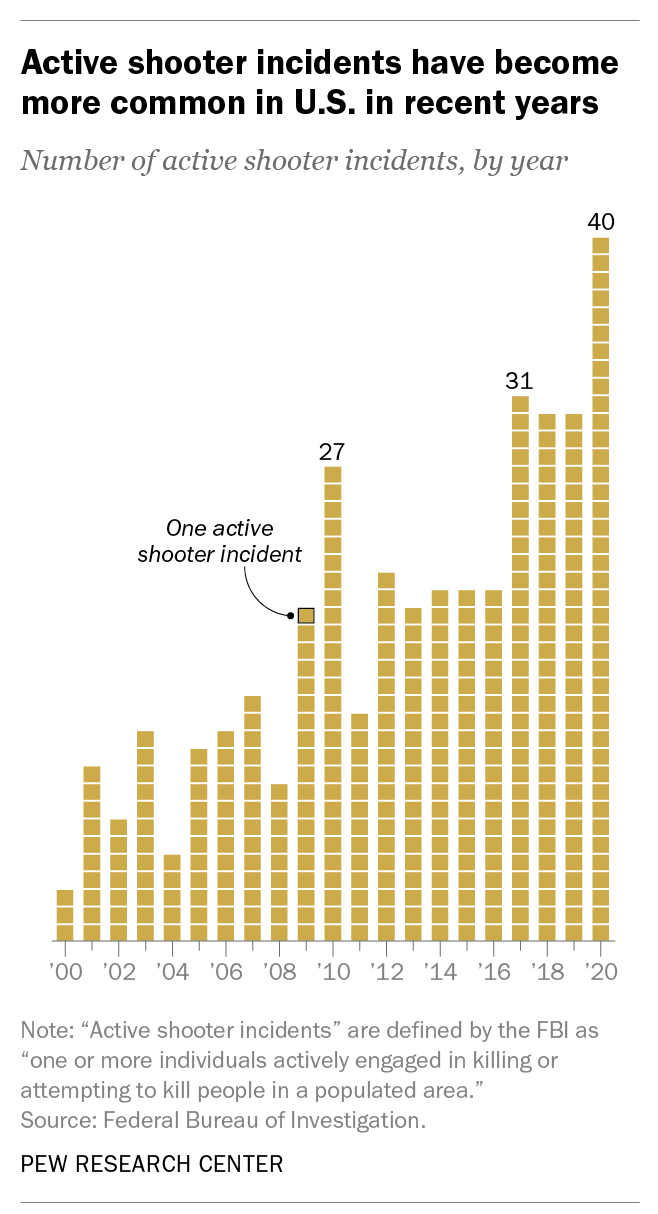Guns, I like to say, make little people feel big.
As most of the country has already learned, a gunman opened fire yesterday on students and teachers at Robb Elementary School in Uvalde—a town of 15,000 that is 82 percent Latinx—killing at least 19 school children and two adults. The suspected killer, deceased, had legally purchased two assault-style rifles earlier this month. It’s the deadliest school shooting in Texas history, the second most deadly nationwide. It comes on the heels of Governor Greg Abbott signing legislation in 2021 that allowed Texans to own and carry guns without essential safeguards like a permit.
It’s hard to say anything new about school shootings in the U.S. because, from here, the script gets predictable, which isn’t to say it’s any less tragic.
The media broadcasts the trauma of grieving families, pulling heartstrings and generating condolences. Then comes the droning on of the commentariat, which recapitulates the same arguments and counterarguments. The political right compartmentalizes the massacre as a senseless event, divorcing it from the larger story about guns in America and why so many people have them and feel they need them. Or the gun nuts attempt to sidestep the issue to talk about “mental health,” which ultimately serves the same purpose: You’re talking about the gunman, rather than the everyday violence and the reckless profusion of weapons of war that sets the stage for murder, mass and not.
Those on the left may call for background checks and bans on assault weapons, which is the best political realists think we can get under a Supreme Court that looks set to strip states of gun control authority. While Associate Justice Samuel Alito and his colleagues find great beauty in subjecting women’s bodily autonomy to state regimes, they seem inclined to treat the manufactured right to bear any and all firearms with greater deference.
But even those on the left, in Texas especially, feel they must genuflect before the mythical archetype of the “responsible gun owner” before calling for action. In reality, there is no such thing as a responsible gun owner because owning a firearm is irresponsible in itself, and the only reasonable thing to do is ban guns altogether. This includes single-shot rifles for hunting, assault-style weapons, and regular handguns.
To my French-American cousins and most Europeans, America’s obsession with firearms is ludicrous. Unencumbered by our indoctrination—which is especially bad in Texas—they recognize our popular justifications for owning guns as the pernicious lies they are.
Guns make society worse. From a collective standpoint, they do little but beget needless violence. They are a net negative for all. In 2020, they killed 45,222 people in the United States. Most often, the person killed is the owner, either by their own hand—in 2020, the most recent year for which complete data is available, 54 percent of gun deaths were suicides—or by accident, according to the Pew Research Center. Firearms drive up the murder rate, with 79 percent of homicides involving guns, mostly handguns.

The gun-related death toll has climbed sharply in recent years, jumping 34 percent from 2019 to 2020 and a staggering 75 percent from a decade prior. The rate of gun violence has also increased, with 13.6 deaths per 100,000 people—the highest since the 1990s, though still below the historical high in the 1970s.
Guns put their owners, and their families, in danger rather than keep them safe. A landmark study on gun ownership recently found that owning one makes you less safe at home—with women at particular risk. If you own a gun, you are more than twice as likely to die from gun violence than if you do not. The gun owner is a threat not only to themself but to everyone in the household. In particular, living with a gun owner makes you more likely to be shot to death by a domestic partner, and the researchers found living in a household with guns provided zero protection from being killed at home by a stranger.
But the lacuna in Americans’ thinking about guns means we fail to connect cause and effect.
If these numbers and findings surprise you, it’s because the gun lobby has been effective at stymying research and making sure the public does not know the facts. The available evidence shows guns put everyone—society, their owners, their families—in danger, but the discourse around firearms is so warped that we don’t fully grasp that we live surrounded by bombs ready to go off.
When it comes to guns, we’re stuck in an endless feedback loop: A month from now, we’ll be in the same place we were a month ago. Here’s hoping that, if nothing else, the Texans in Uvalde will find some solace eventually.

